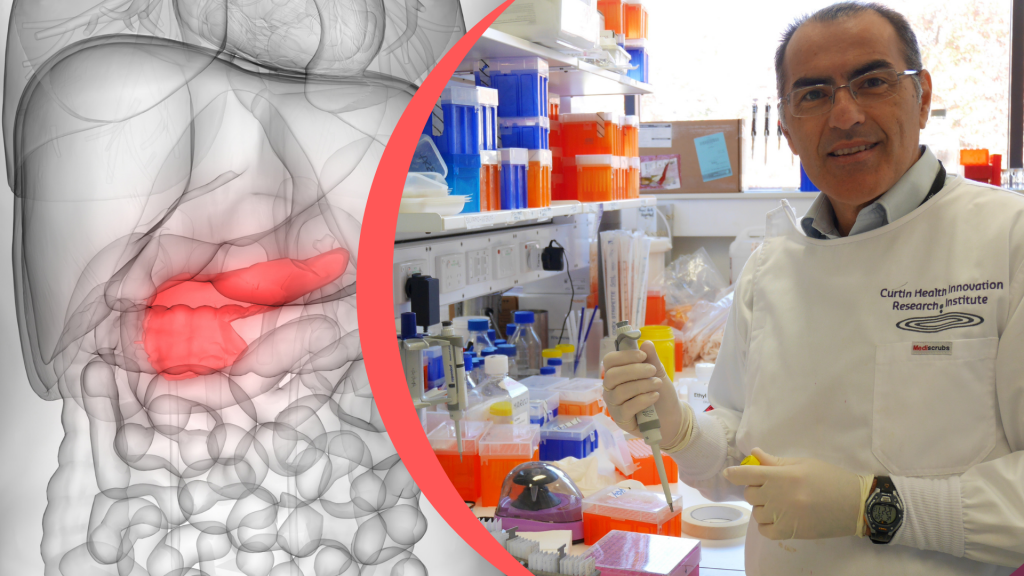Research led by Curtin Health Innovation Research Institute (CHIRI) researcher Professor Marco Falasca has discovered a potential new treatment for an aggressive form of pancreatic cancer which the team hopes may increase the survival of patients resistant to currently available chemotherapeutic drugs.
Published in the Journal of Experimental and Clinical Cancer Research, the research found a specialised protein in human pancreatic ductal adenocarcinoma (PDAC) cancer cells that is critical for tumour progression. The researchers discovered that treatment with a modified version of an anti-inflammatory drug, called sulindac, could block cancer progression in preclinical models with PDAC.
Marco, who is the lead author, said the protein studied in this research is also known to cause resistance to currently available cancer chemotherapeutic drugs.
“Overexpression of tumour promoting proteins found in cancers like PDAC is one of the main reasons why chemotherapeutic drugs are ineffective for the treatment of pancreatic cancer. Targeting this protein could be particularly beneficial in treating patients who have failed standard chemotherapy for PDAC,” he said.
“Further research is needed to determine whether a possible drug combination, which includes the modified version of sulindac, may also provide promising results in human clinical trials. If successful, then this new treatment has the potential to increase survival for patients with pancreatic cancer.”
The modified version of sulindac was developed by a team of researchers led by Professor Gary Piazza from the Drug Discovery Research Center at the USA Health Mitchell Cancer Institute.
The research was co-authored by CHIRI researchers Aleksandra Adamska, Alice Domenichini and Vincenzo De Laurenzi (School of Pharmacy and Biomedical Sciences at Curtin University), Dr Gianluca Sala and Professor Vincenzo De Laurenzi from University “G D’Annunzio” of Chieti-Pescara, and researchers from Queen Mary University of London and the University of South Alabama in the US.
Read the full Curtin media statement here.
This research project is made possible by an Avner Pancreatic Cancer Foundation Grant www.avnersfoundation.org.au.
The paper was supported by Fondazione AIRC (Italian Foundation for Cancer Research) and can be found online here.
